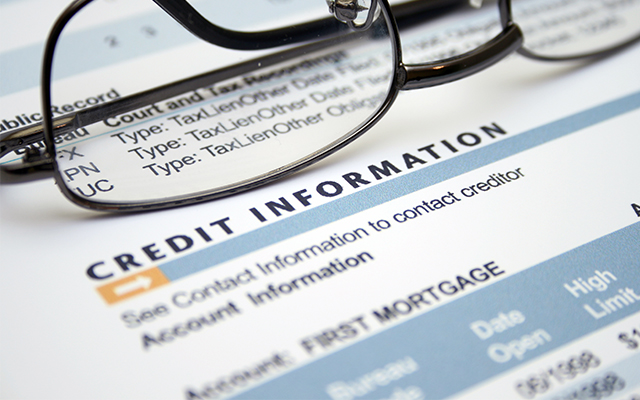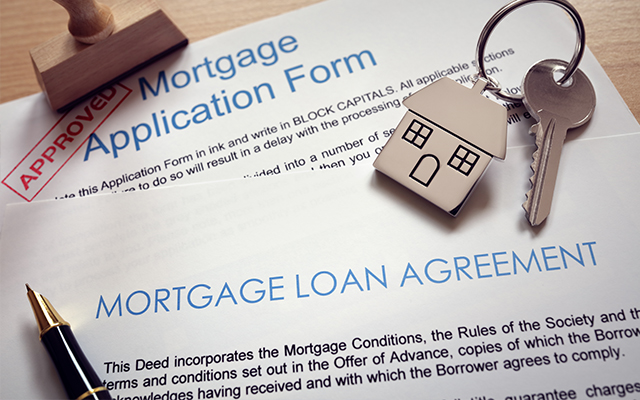Getting a Mortgage with Bad Credit

Getting into a situation where you have bad credit doesn’t just affect whether lenders will provide you with more credit, it also means that you will have to pay higher interest fees on a mortgage.
Mortgage lenders apply higher interest rates to applicants that have poor credit because the credit history shows that there is a risk of missed payments when lending to the borrower.
What is bad credit?
Bad credit refers to when a person has a credit record that shows they have missed payments, had high levels of debt or even bankruptcy and CCJs (County Court Judgment registered where a person has not repaid the money they owe).
When someone applies for credit, companies will run a credit check on them to assess the risk of lending to them. People with a good credit history rarely have problems getting credit, whilst those with bad credit will find they get refused or must pay higher levels of interest on credit cards, mortgages and other loans.
Lenders use credit record agencies to view a loan applicant’s credit history, which will also provide them with a credit score. Different credit record agencies use different scoring systems, Experian for example, goes up to a maximum of 999.

Their full scoring chart is as follows:
0-560 = Very Poor
561-720 = Poor
721-880 = Fair
881-960 = Good
961-999 = Excellent
The higher the credit score, the more attractive you are to lenders and more likely to get accepted for credit (and higher amounts of it).
Can I still get a mortgage with bad credit?
The lower your credit score is, the less options you will have for mortgage deals, but it does not mean that you will be unable to get a mortgage at all.
With bad credit, you will have less lenders to choose from and you can expect to pay significantly higher interest rates on your mortgage.
On the current mortgage market, the fixed rate interest rates vary from 1.48% up to around 6%. Applicants with poor credit are unlikely to be accepted for the lower rates and will instead have to apply for a mortgage lender that is happy to lend to people with bad credit.
Over three years, the difference of paying interest at 6% compared to paying interest of 1.48% on a loan of £150,000 is significant, so choosing whether to apply for a mortgage with bad credit is a big decision.
It is important to carefully research the different mortgages that are available to try and find the best deal.
You may even consider whether it is worth waiting a bit longer to take out a mortgage and in the meantime, you can work on improving your credit records.
Even just having six months of meeting payments on time can greatly improve your credit score and there are other ways you can improve your credit score, which we go into further detail in below.

Some people with bad credit who are looking to get onto the property market decide to rent for a while so that they can improve their credit rating, therefore saving the extra interest that they would pay if they were taking the mortgage out immediately.
Free consultations are available in the UK.
Get Started NowHow does a bad credit mortgage work?
A bad credit mortgage is mostly the same as a standard mortgage except the interest rates will be higher, they will generally have a lower borrowing limit and the lender may also ask for a higher deposit amount compared to a standard mortgage.
You may also be subject to higher fees for taking out the mortgage and a broker (if you use one) could add further fees.
If you have what is considered to be very poor credit, then you will have to find a specialist mortgage lender that is prepared to take on the higher risk that is presented to them.
One of the big issues with applying for mortgages when you have bad credit is that if you get refused for a mortgage, this can further impact your credit score.
Therefore, instead of applying for a mortgage that you are unlikely to get approved for, you should research your options based on your credit history.
If you decide to take out a bad credit mortgage, you should try to find the one with the lowest interest rate and the lowest fixed term, as you will hopefully be in a better financial position in two years’ time, in which case you can find a better mortgage deal.
The first step when considering taking out a mortgage should be to review your credit record, so that you get an idea of what types of mortgages you are likely to be accepted for.
To do this, you can use any of the credit reference agencies such as Experian, Equifax and TransUnion.
Once you have an idea of the situation you are, you can talk to a broker to see which deals are available and avoid the scenario of applying for a mortgage that you will get declined for.
Can I remortgage with bad credit?
Yes, in the same way that there are lenders that will provide mortgages for first time buyers with bad credit, there are companies that will allow you to remortgage with bad credit.
However, there will be certain criteria that could impact the possibility of getting a remortgage, such as negative equity or not having a good enough LTV ratio.
Lenders prefer to provide mortgages where the LTV (Loan to Value) ratio is 80% or better, as there is less risk for them.
In the event that a homeowner stopped making mortgage payments, the eventual scenario would be for the mortgage lender to take the case to court and repossess the property so they can sell it to get their money back.
Having some equity in the home will decrease the chance of the lender losing money if the borrower stops paying their mortgage.

If the LTV is not an issue then a remortgage should be possible, although the disadvantages such as higher interest rates and higher fees will apply and there will be limited options available for applicants with bad credit.
What can I do to improve my credit score and get a better mortgage deal?
Before you apply for a mortgage or a remortgage, get a full understanding of your credit report and how your credit history impacts your score.
For example, a CCJ stays on your credit record for six years, so if you are not far off that period then it would be worthwhile waiting until it has been removed.
Recent missed payments carry more impact on your score than older ones, so making sure that you meet all of your recent payments is a good start to improving your credit score.
The best ways to improve your credit score are:
- Always make your credit payments on time.
- Register on the electoral roll at your address.
- Reduce the amount of credit you are using.
- Don’t make any credit applications.
- Close any unused accounts.
- Regularly check your credit score for changes.
- Pay accounts in full instead of minimum payments.
There are other factors that will impact your ability to get a better mortgage deal, including your income, equity value in your home and your outgoings.
Having a very limited credit record (or none at all) can result in you having bad credit, so if this is the case you should build up some credit before applying for a mortgage.
What Our Clients Think
How to improve your chances of getting accepted for a mortgage with bad credit
The best way to get yourself in a position to get accepted for a mortgage is to have all of the details that you need about your financial situation.
Spending time to improve your credit score by following the guidance in the section above will help you to make significant improvements to your credit score and have more mortgage deal options.
In some cases, mortgage applicants ask a relative to be a guarantor so that they are able to get a mortgage but for the majority of applicants with bad credit, finding a good broker that can find the right deal for them is the best option.
Being open with the broker regarding credit score is also important, so that they are looking at the right deals for the applicant, which are most likely to be accepted.
Applying for a mortgage that gets declined will further impact poor credit, so should be avoided.

Conclusion
There are plenty of mortgage companies that are prepared to lend to people with bad credit, but this is generally because they stand to gain from taking on the risk by charging inflated interest rates.
Before applying for a new mortgage, work towards improving your credit score and then find a reputable broker who you can trust to find the best deal for you, as many on the market will be looking to make money from you with high fees.
If you would like to speak in more detail about getting a mortgage with bad credit, Boon Brokers have been providing advice to clients with bad credit for many years and will be happy to help.
Gerard BoonB.A. (Hons), CeMAP, CeRER
Gerard is a co-founder and partner of Boon Brokers. Having studied many areas of financial services at the University of Leeds, and following completion of his CeMAP and CeRER qualifications, Gerard has acquired a vast knowledge of the mortgage, insurance and equity release industry.Related Articles
- Mortgage Broker Fees
- How Much Does The Average Mortgage Cost
- Mortgage Borrowing Calculator
- Should I Use My Estate Agents Mortgage Broker?
- Military Mortgages Guide
- What Is A 100% Mortgage
- What is CheckMyFile?
- How Much Deposit Do I Need For A Mortgage
- How To Improve Your Chances Of Getting A Mortgage
- The House Buying Process
- How To Build Home Equity
- Benefits Of A Commercial Mortgage
 Authorised and regulated by the Financial Conduct Authority. No: 973757
Authorised and regulated by the Financial Conduct Authority. No: 973757




